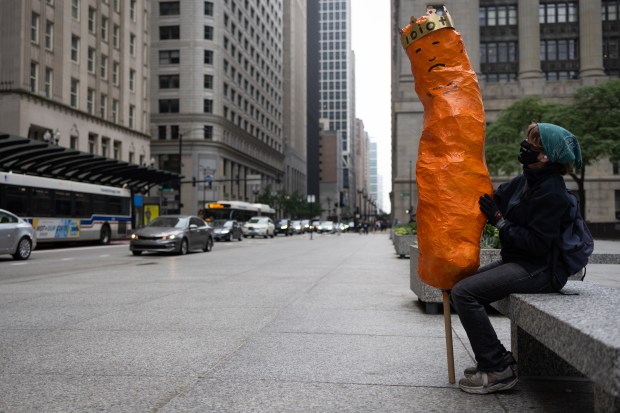After hearing a presentation and asking various questions, the Gary Redevelopment Commission chose to postpone its vote related to a housing authority project geared toward homeless veterans.
At the commission’s board meeting Wednesday, Vice President Darren Washington motioned to postpone the vote until the next meeting, which is scheduled for Dec. 18.
The Gary Housing Authority is asking for the redevelopment commission to transfer 14 of its properties. The housing authority plans to use those properties to construct 20 single-family rental homes in the Emerson neighborhood.
If passed, the project will provide housing for homeless veterans in the Gary community. The U.S. Department of Veterans Affairs will use its Veterans Affairs Supportive Housing voucher waitlist to identify and place residents, according to a news release from the city of Gary.
“We are in the midst of a national housing crisis, and one of the populations suffering the most are our veterans,” Mayor Eddie Melton said in a news release. “Veterans are an integral part of our community and deserve our honor and respect.”
The homes will be adjacent to Northwest Indiana Veterans Village on Massachusetts Street, which is currently full, according to executive director of community development Ragen Hatcher. That $10 million project was built to house and care for formerly homeless veterans, according to the Affordable Housing Tax Credit Coalition’s website.
“They’re very close,” Hatcher said. “When there’s food giveaways at Veterans Village, they can simply walk across the street and pick those things up.”
Gary officials expect this new veterans housing project to cost $2.1 million.
In 2025, Gary officials plan to have additional opportunities for people to buy and develop diverse housing options downtown, Melton said in the release.
Taryl Bonds, executive director of the Northwest Indiana Development Corporation and GHA, called the project “a brainchild” of the city’s last two administrations.
“Veterans who give their lives and service to our country and for our freedom need to have a place to live,” Bonds said.
The city of Gary received about $500,000 from the Lake County Economic Development Commission to work towards eradicating homelessness. Members of the previous administration asked if the GHA would help with the application.
The money was awarded during the Melton administration, Bonds said. Hatcher and Christopher Harris, redevelopment commission executive director, had the idea to create homes for homeless veterans, Bonds said.
“They won’t be for sale,” he added. “They will be for rent, and the GHA will be part of it. NIDC will be the developer.”
Of the 20 homes, 15 will have one bedroom and five will have two bedrooms.
Hatcher said she has wanted to get tiny homes in the city of Gary for years, she said Wednesday. Although the buildings won’t be tiny homes, Hatcher feels she will achieve her goal through this project.
To assist in development, Bonds plans to apply for tax credits through the Indiana Housing and Community Development Authority. The application is due Dec. 31.
“Whether we get the tax credits or not, homelessness is something that we should all be in the business of trying to solve,” he added.
The resolution originally asked for the commission to transfer the property to the NIDC, but it was amended to the GHA. At Wednesday’s meeting, Washington said the amendment led to his motion to postpone the vote.
“I have a lot of concerns,” Washington said. “My dad is a veteran, I love our veterans. I want to see the project go through, but this commission has to be diligent in the decisions that it makes.”
Washington asked Bonds how the two agencies are connected, adding that he was also concerned that Bonds holds both positions.
Everyone who serves on the GHA board automatically serves the NIDC, Bonds said Wednesday, adding that the NIDC works as the GHA’s developer.
The U.S. Department of Housing and Urban Development created the concept of having multiple agencies, Bonds said, which is designed to save money and provide safe, decent and sanitary housing to the community. Bonds also said he can’t get paid extra for his work with both agencies.
Washington also asked who would own the property after the project is complete.
“NIDC will own the property, NIDC will manage the property,” Bonds told Washington. “But the same token is essentially owned at a distance by the GHA. So, the GHA owns the land if it’s conveyed.”




